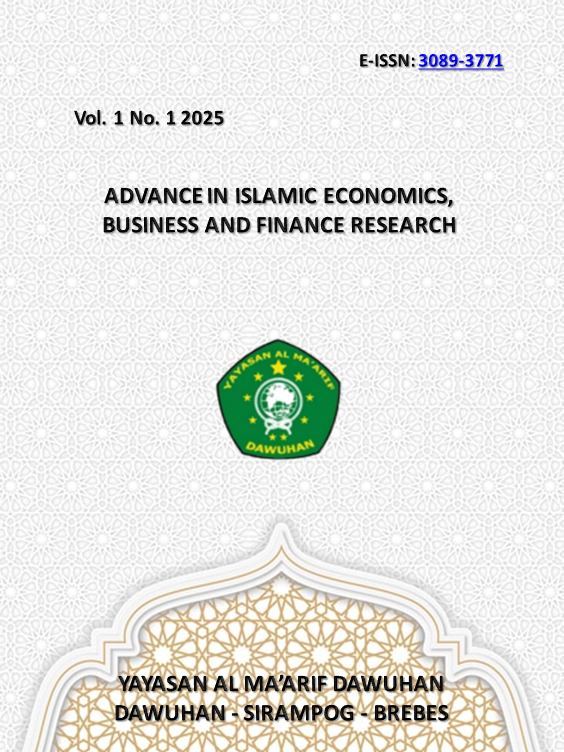Analysis of the Role of the Halal Food Industry in Reducing Indonesia's Trade Balance Deficit
Keywords:
Food Industry, Halal, Trade BalanceAbstract
This research is motivated by the existence of economic problems, namely Indonesia's balance of payments (trade) which continues to be in deficit. As a country with abundant natural wealth and large market potential, Indonesia has not yet moved to become a global center for halal food exports. Even though the supporting natural resources are very abundant, at least they can meet the needs of the Indonesian people, even up to the level of exports. This study wants to find out if there is a role for the halal food industry in reducing Indonesia's trade balance deficit. Based on the above background, the main problem is: why with the potential of the existing halal food industry, Indonesia still imports halal food, causing a deficit in Indonesia's trade balance. The research method used to answer the above problems is a qualitative research method with a library system, with a descriptive analysis approach. Research data is obtained from journals, reports, and economic statistical data released by related institutions. After doing the research, the result is that there is a role for the halal food industry in helping to reduce the trade balance deficit from the non-oil and gas sector. Because the average processed food products and raw/auxiliary materials exported are halal products. However, its role is still considered too small so that it needs to be increased again so that it can fulfill the government's desire to make Indonesia the center of the halal industry, starting with the food industry. The lack of utilization of the 3 main sectors of the halal food industry, namely agriculture, animal husbandry and fisheries, is a challenge for Indonesia to manage it. The awareness of food entrepreneurs to register for halal certification which has not been maximized is also a homework for the government to enter the halal market.
Downloads
Published
Issue
Section
License
Copyright (c) 2024 Advance in Islamic Economics, Business and Finance Research

This work is licensed under a Creative Commons Attribution-NonCommercial-ShareAlike 4.0 International License.




